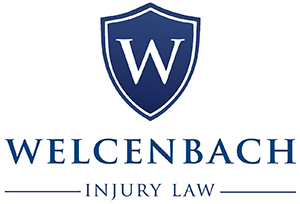Types of Abuse in Nursing Homes: 3 Tips for Dealing With Nursing Home Neglect

Cases of nursing home neglect and abuse occur more often than we’d like to admit. If your loved one lives in a nursing home, then it’s helpful to learn about the types of abuse that can happen in an assisted living community.
Understanding the abuse that could take place makes you better able to spot the warning signs if your loved one is being abused or neglected. It’s also important to know what to do in case your loved one is experiencing nursing home abuse and neglect.
When you admit a loved one into a nursing home, you trust the staff to provide top-quality care. Unfortunately, nursing home abuse and neglect can be common. Continue reading this guide to learn about the different types of nursing home abuse and tips to deal with such neglect.
If your loved one is experiencing neglect at the hands of nursing home staff, contact Welcenbach Law Offices to learn more about your options.
Types of Abuse in Nursing Homes
There are seven common types of abuse in nursing homes.
Abandonment
This refers to when a caregiver leaves a senior to care for themselves. Senior citizens are often placed in nursing homes because they cannot care for themselves, so abandonment causes damage to both physical and mental health.
Emotional Abuse
Emotional neglect or abuse encompasses many things—namely, causing someone pain or anguish in a verbal or non-physical manner. This can include but is not limited to insulting, threatening, humiliating, or harassing someone. A caregiver yelling at a resident in a nursing home could be considered emotional abuse.
Financial Exploitation
Financial abuse or exploitation in a nursing home involves misusing a resident’s finances. Stealing or overcharging a resident are two common examples of financial exploitation in a nursing home. Other examples include preventing a resident from accessing their funds or using a resident’s credit card.
Neglect of Basic Needs
Neglect of a resident’s basic needs refers to a resident’s unmet needs, which can include not getting enough food and water or failing to receive proper hygiene care. Not giving residents their prescribed medications is nursing home neglect, as well.
Physical Abuse
When someone intentionally or negligently causes physical harm to a nursing home resident, it is considered physical abuse. Some examples of physical abuse include pushing, hitting, or being restrained. If you notice bruises, bleeding, or broken bones on your loved one, that could be a sign that they are suffering from physical abuse in their nursing home.
Self-Neglect
Self-neglect can refer to self-harm or the inability to care for oneself. This abuse can be found in independent living communities or assisted living facilities. Even though this type of neglect is self-imposed, a nursing home can be held liable if the resident is in their care and did not take proper actions to prevent it.
Sexual Abuse
Sexual abuse or harassment is any sexual conduct or touch that is unwanted or nonconsensual. This type of abuse can be physical or verbal. Unfortunately, sexual abuse often occurs in nursing home residents who are disabled or incapacitated. Cases of sexual abuse are serious, and the nursing home can be held liable if these cases aren’t handled properly.
Three Tips for Dealing With Nursing Home Neglect
Here are three basic tips for dealing with abuse and neglect in a nursing home.
Report Nursing Home Neglect
If you notice any signs of nursing home neglect or abuse, report it to the Wisconsin Department of Health Services Adult Protective Services. Adult Protective Services provides resources and steps to follow if you suspect a loved one is being abused or neglected.
Contact the Police in Case of an Emergency
If you think your loved one is in immediate danger, contact the police. Call 911 if there is an emergency. Local law enforcement will arrive at the nursing home and remove your loved one from the dangerous situation.
Consult With A Nursing Home Abuse Lawyer
Finally, contact a nursing home abuse lawyer immediately if you suspect your loved one is experiencing nursing home neglect. You and your loved one may be entitled to financial compensation for the damages they endured.
How Can a Nursing Home Abuse Lawyer Help?
When you place your loved one into a nursing home, you are relying on the care team to provide the best service for your family members. Sadly, elder abuse is more common than we’d like to consider. If your loved one has experienced nursing home neglect, an experienced lawyer can look at your case and help the victim get the compensation they deserve.
However, nursing homes will do whatever it takes to protect themselves, which is why you need the knowledge and support of a nursing home abuse lawyer.
If you suspect your loved one is being neglected or abused in their nursing home, contact a nursing home abuse lawyer from Welcenbach Law Offices today.

 Robert Welcenbach is an Owner and Partner at Welcenbach Injury Law, a family-owned personal injury law firm in Milwaukee, WI. With more than 24 years of experience practicing law, he seeks justice for clients in a wide range of legal areas, including car accidents, class actions, dog bites, nursing home abuse, and other personal injury matters.
Robert Welcenbach is an Owner and Partner at Welcenbach Injury Law, a family-owned personal injury law firm in Milwaukee, WI. With more than 24 years of experience practicing law, he seeks justice for clients in a wide range of legal areas, including car accidents, class actions, dog bites, nursing home abuse, and other personal injury matters.